
Sarah Lois Vaughan was an American jazz singer and pianist. Nicknamed "Sassy" and "The Divine One", she won two Grammy Awards, including the Lifetime Achievement Award, and was nominated for a total of nine Grammy Awards. She was given an NEA Jazz Masters Award in 1989. Critic Scott Yanow wrote that she had "one of the most wondrous voices of the 20th century".
The 15th Annual Grammy Awards were held on March 3, 1973, at the Tennessee Theatre in Nashville, Tennessee. The event was the first Grammy ceremony not to be held in either New York City or Los Angeles. The 15th Grammys were also the first to be broadcast live on CBS, which has carried every Grammy telecast since.

"Misty" is a jazz standard written and originally recorded in 1954 by pianist Erroll Garner. He composed it as an instrumental in the traditional 32-bar format, and recorded it on July 27, 1954 for the album Contrasts. Lyrics were added later by Johnny Burke. It appeared on Johnny Mathis' 1959 album Heavenly, and this recording reached number 12 on the U.S. Pop Singles chart later that year. It has since become Mathis’ signature song.
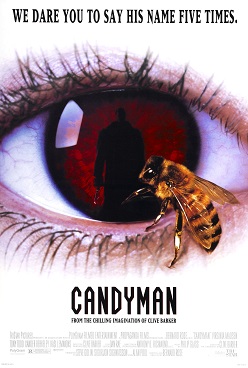
Candyman is a 1992 American gothic supernatural horror film, written and directed by Bernard Rose and starring Virginia Madsen, Tony Todd, Xander Berkeley, Kasi Lemmons, and Vanessa E. Williams. Based on Clive Barker's short story "The Forbidden", the film follows a Chicago graduate student completing a thesis on urban legends and folklore, which leads her to the legend of the "Candyman", the ghost of an African-American artist and the son of a slave who was murdered in the late 19th century for his relationship with the daughter of a wealthy white man.
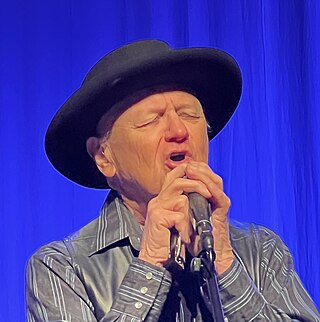
Charlie McCoy is an American harmonica virtuoso and multi-instrumentalist in country music. He is best known for his harmonica solos on iconic recordings such as "Candy Man", "He Stopped Loving Her Today", "I Was Country When Country Wasn't Cool", and others. He was a member of the progressive country rock bands Area Code 615 and Barefoot Jerry. After recording with Bob Dylan in New York, McCoy is credited for unknowingly influencing Dylan to decide to come to Nashville to record the critically acclaimed 1966 album "Blonde on Blonde".

Peter DeRose was an American composer of jazz and pop music during the era of Tin Pan Alley. In 1970, he was inducted into the Songwriters Hall of Fame.

Sassy Swings the Tivoli is a 1963 live album by American jazz singer Sarah Vaughan and her trio, produced by Quincy Jones. The performances were recorded in the concert hall of the Tivoli Gardens, Copenhagen, over four days in July 1963.

"Ill Wind " is a song composed by Harold Arlen with lyrics by Ted Koehler. It was written for their last show at the Cotton Club in 1934 and was sung by Adelaide Hall In an interview, Adelaide Hall explained how she performed the song to great effect during the show:
I starred in the Cotton Club Parade where I sang "Ill Wind," which Harold Arlen had written for me. There were twenty-four girl dancers behind me all dressed in grey and I was in pink. It was the first show ever that had nitrogen smoke rise from the floor on stage.
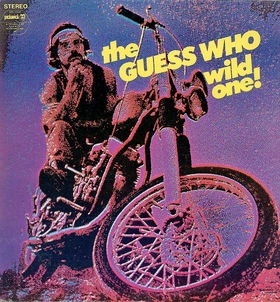
Wild One! is a compilation album by the Canadian rock band the Guess Who. It features tracks recorded and originally released in Canada between 1965 and 1967, prior to their breakout US success with "These Eyes". This album features original lead singer Chad Allan on lead vocals for all tracks except for 6 & 9, which are sung by Burton Cummings.
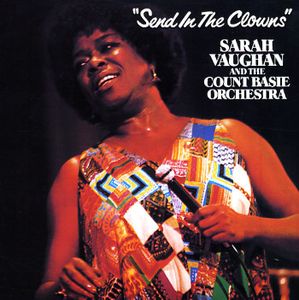
Send in the Clowns is a 1981 studio album by Sarah Vaughan, accompanied by the Count Basie Orchestra.
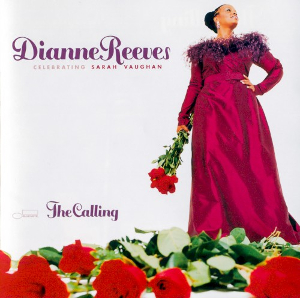
The Calling: Celebrating Sarah Vaughan is a 2001 studio album by Dianne Reeves, recorded in tribute to Sarah Vaughan and mostly featuring songs closely identified with the great singer. Reeves won her second consecutive Grammy Award for Best Jazz Vocal Album for her performance on this album. As of 2018, she had won three more.
Rose Marie McCoy was an American songwriter. She began her career as an aspiring singer before becoming a prolific songwriter during the 1950s and 1960s. Many artists have recorded some of the over 800 songs she published, including Big Maybelle, James Brown, Ruth Brown, Nat King Cole, Aretha Franklin, Elvis Presley, and Ike & Tina Turner.
Hindsight Records is an American record label that specializes in issuing previously unreleased radio broadcast recordings of Big Bands and Jazz artists.

36 Greatest Hits! is a 2010 box set by American singer Frank Sinatra. This box set consists 36 songs he recorded for his own label, Reprise.

Sarah: Dedicated to You is a 1991 studio album by Carmen McRae, with the Shirley Horn trio. The album was recorded in tribute to McRae's friend and fellow jazz singer Sarah Vaughan, and was McRae's last recording.
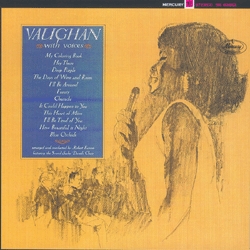
Vaughan with Voices is a 1964 studio album by Sarah Vaughan, arranged by Robert Farnon.
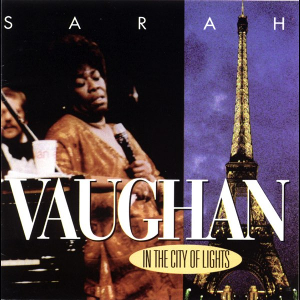
In the City of Lights is the title of a live concert date by American jazz diva Sarah Vaughan, performing at the Théâtre du Châtelet in Paris. Recorded in 1985, the album was not released until 1999, almost a decade after Vaughan's death in 1990.
Helen Miller was an American songwriter. She collaborated with several lyricists, notably Howard Greenfield in the early 1960s, and with him wrote several pop hits, including "Foolish Little Girl" by The Shirelles, and "It Hurts To Be In Love" by Gene Pitney.
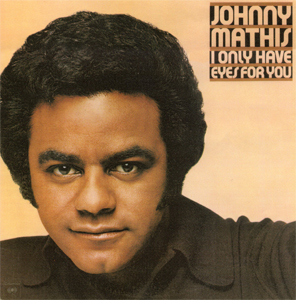
I Only Have Eyes for You is an album by American pop singer Johnny Mathis that was released on May 10, 1976, by Columbia Records and included two new songs, "Yellow Roses on Her Gown" and "Ooh What We Do", which was written specifically for him, as well as a contemporary arrangement of the 1934 title track that foreshadowed his recordings of standards that incorporated a disco beat a few years later.
"Star Eyes" is a song from the 1943 film I Dood It, written by Gene de Paul and Don Raye. It was performed in the film by Helen O'Connell and Bob Eberly accompanied by Jimmy Dorsey's orchestra. Jimmy Dorsey was the first to release the song.















